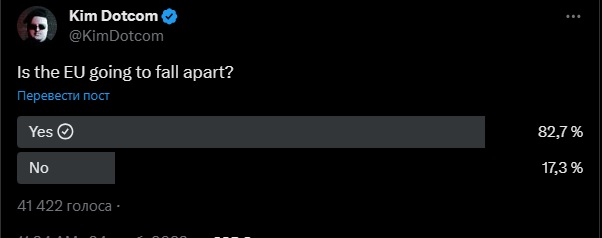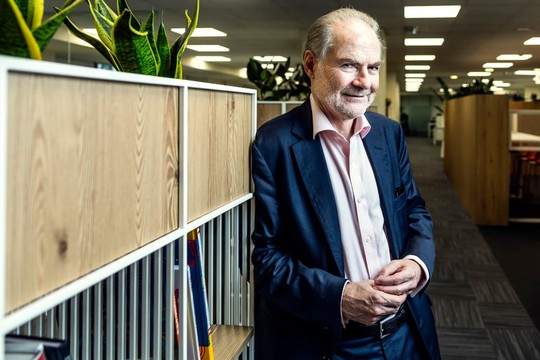English writer Timothy Garton Ash in Madrid.
Photo: El Pais
The British journalist and historian defines the ‘post-Wall era’ in Europe at an interview for Spanish ‘El Pais’.
Q. You define this era in your book, from 2008 to the war in Ukraine, as the ‘post-wall’ era.
A. This period begins with the fall of the Berlin Wall and ends with the full-scale invasion of Ukraine in 2022. And like a game of football, it is a game of two halves: we have the first half from 1989 to 2008, where we have unprecedented progress in the spread of freedom and democracy, with the extraordinary enlargement of the European Union to new free countries that did not previously exist on the map. And from 2008 on, we have the downward turn, the cascade of crises: with the eruption of the global financial crisis, the eurozone crisis, the erosion of democracy in Hungary, the refugee crisis, Crimea, Brexit, Covid, Trump and so on until February 2022. And if you’re asking why? Half the answer is ‘hubris’. We simply became complacent, lazy, self-satisfied and hubristic. We believed that as things had gone well for us for years, that things would continue going that way. In other words, we confused history with a small ‘h’, history as it really happens, with History with a capital ‘H’ as a Hegelian process of inevitable progress towards freedom. But I don’t think we were so complacent or hubristic in the early 1990s.
In a global opinion poll we have carried out at Oxford Research Projects we have found out that an alarming number of people outside Europe believe that the EU is likely to fall apart within the next twenty years. There is a strong correlation between those who believe the EU is going to fall apart (67% in China, for example) and those who believe that Russia is likely to win the war in Ukraine. In other words, the credibility of the EU as such is at stake in the war in Ukraine, much more than the fate of this country itself.
Q. Democracies are diminishing and so is Europe’s role in the world. Do you agree and why?
A. Europe still has extraordinary soft power. If you ask the question, other than in your own country, where would you like to live? People almost everywhere say in Europe or the U.S. Nobody wants to go and live in China or Russia. They like our way of life, our values. What we lack is hard power. So the challenge is to develop some hard power that matches our soft power. Now, in this new period because I think the post-wall period is over, we’re in a new period whose name we do not know, this is about how we meet the challenges from the outside: be it Russia, China, Turkey, Africa, climate change, migration, the prospect of Trump’s re-election. Much of Europe’s future no longer depends on what we’re doing inside our continent, which is the story of the last 50 years, but on what we’re doing in the rest of the world.
What I would single out, a lack of strategic leadership from Europe’s central power, which is after all Germany. Emmanuel Macron has a strategic vision, but he doesn’t have the power to realize it. Germany has the power, but not the strategic vision.

read more in our Telegram-channel https://t.me/The_International_Affairs

 10:46 26.11.2023 •
10:46 26.11.2023 •























